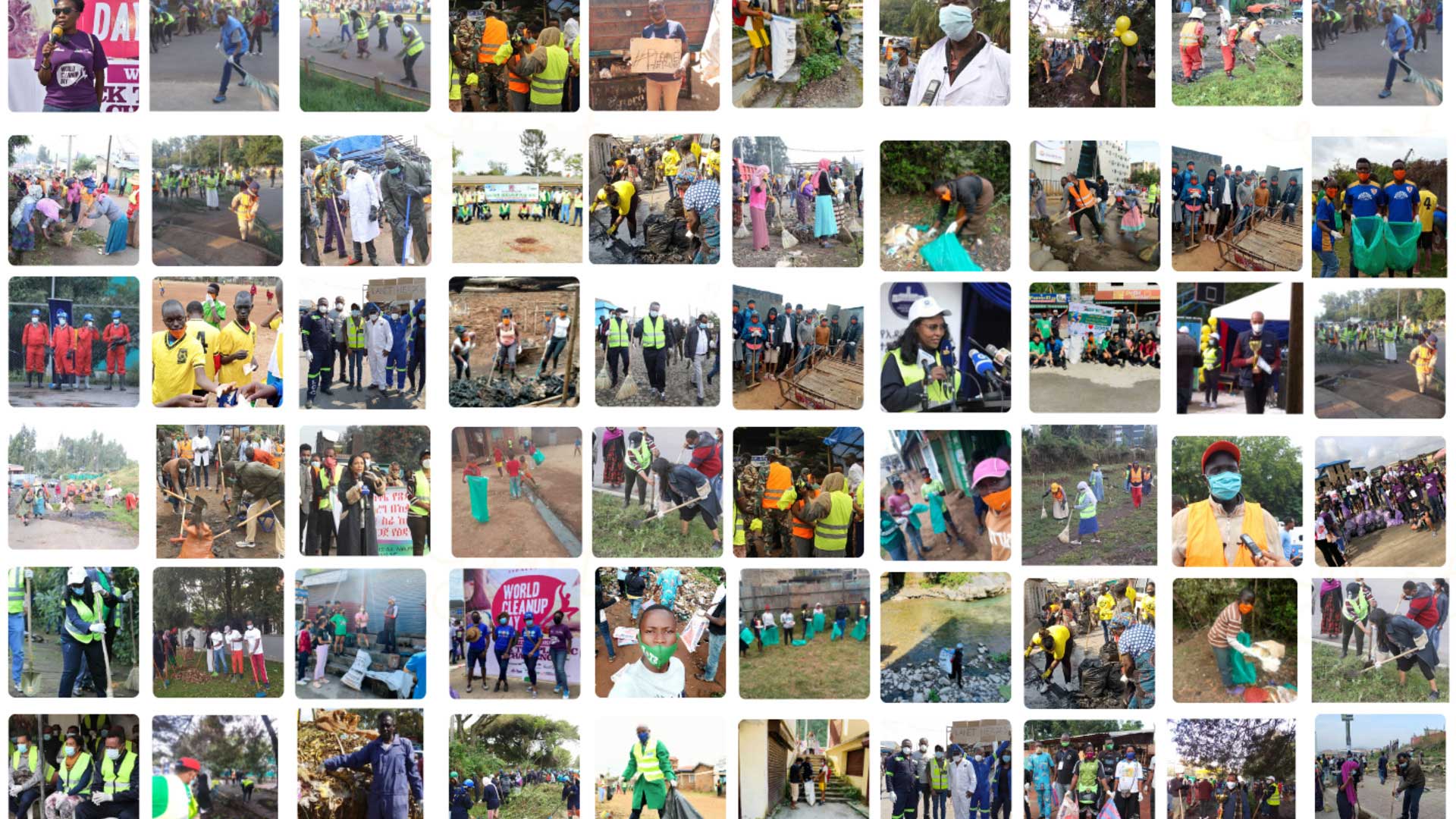Globally, uncollected and unmanaged municipal solid waste directly contributes to green house gases emission (GHG) and climate change; global marine plastic pollution especially in coastal cities; air and water pollution in cities, posing threasths to the environment and human beings healths.
Uncontrolled disposal sites are already a major source of GHG, and if we continue with business as usual scenario, it is predicted that by 2025 their contributon, especially through food waste, will account for 8-10% of global anthropogenic GHG emissions. Every year at least 8 million tonnes of plastic finds its way into the world’s oceans adding up on the 150 million tons already floating in our oceans.
On World Habitat Day 2018, UN-Habitat, launhed the Waste Wise Cities (WWC), a call to action to support local governemnts to tackle the global challenge of waste management and move towards a circular economy. Globally, today WWC has 175 member cities committing to improve the collection, increase resources recovery and ensure environmentally safe disposal of waste.
UN-Habitat together with Ministry of Environment Japan, Japan International Cooperation Agency, United Nations Environment, Yokoama city, also established the African Clean Cities Platform (ACCP), with the aim of realizing clean and healthy African countries and cities. Currently 65 cities in 37 countries in Africa are participating.
UN-Habitat is the custodian agency for Sustainable Development Goal indicator 11.6.1 (the proportion of municipal solid waste, regularly collected and managed in controlled facilities, out of total municipal solid waste generated by the city). Under WWC and ACCP, a municipal solid waste management assessment tool was developed: the Waste Wise Cities Tool (WaCT). The tool provides a rapid , cost effective and scientific method that cities can adopt to assess and improve their municipal solid waste management practices. Details can be seen here.
Currently, 2 billion people do not have access to waste collection service, and 3 billion people are without or with limited access to controlled waste disposal. This means that huge amounts of waste ends up in our environment, polluting our water bodies, air and land , air. To clear up the litter we need to turn the tide of our current linear pattern of consumption and production and embrace a the circular economy. In other words change our wasteful behaviour and become “waste wise”. But how can we catalyze such behaviour change? Encouraging communities to participate in clean-up activities might be one way of raising awareness and changing behavious.
World Clean-up Day, celebrated in September every year, is an initiative which began in Estonia in 2008 and has since grown to become a global movement. In 2019, more than 21 million people from 180 countries participated in “clean up” activities in their communities.. This year, UN-Habitat appealed to its member countries and partner cities to organize clean-up drives in cordination with the measures being taken to reduce the spread of COVID-19. Cities from Ethiopia, India, Kenya, DRC Congo, Nigeria, Tanzania have come forward in organising various activities . Further, on 15th September 2020, UN-Habitat in collaboration with All Together Global Cleanup organized a webinar to discuss why clean-ups are important and how clean-up events can be key factor in triggering behavioural change. Nowadays, clean-ups are supported by smart technologies – which for example allows easy identification of the producers of the litter. This is very effective way in raising awareness of the importance of circular product design – designing products in a way at the end of their life cycles, their components can become inputs for new products, mimicking the regenerative cycle of nature. In the webinar, NGOs’ perspectives were shared by Seven Clean Seas and Let’s do it India & Kenya who discussed their grass root work on clean-ups, emphasizing how these are becoming real environmental movements. Further, there were insights from the digital perspective by Litterati, a user network that helps identify, map, and collects litter — resulting in an Open Litter Database, and Planet Heroes – first crowd-funding platform for clean-ups. Lastly Alliance to End Plastic Waste, an NGO formed by well known companies committed to address the issue of plastic waste and presented their mass campaign to promote clean-ups. The recording of the webinar can be accessed on UN-Habitat’s Youtube Channel.
WWC welcomes cities and organization to become the part of its network! Find out more on our website or contact us at wastewisecities@un.org! Let’s become waste wise together!


